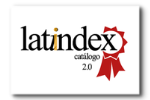Agreements between Europe and USA after political election on 2024 looking at Mario Draghi’ competitiveness proposal
DOI:
https://doi.org/10.5281/zenodo.14509890Palavras-chave:
Europe, USA, BRICS, Economic competition, ProductivenessResumo
The paper is discussion research aiming to underline a few economic strategy elements of possible agreement and conflict between Europe and the USA after the European Union parliament and executive council election. Donald Trump was elected in November as the 47th president of the USA with a changing international and national economic agenda. Thus, the next year, the Western block must decide how to face the opposition of the world leadership led by China and Russia and the BRICS block. The paper focuses on economics. The result is more agreements than conflicts, especially about competitiveness, energy cost reduction, and military defense. However, politics will be interested more in social and welfare concerns. The concluding remarks of the paper will explain that Western growth is possible even in competitiveness supported by financial and great corporation growth despite the evidence of the strong economic power of BRICS. Politics in the USA and EUROPE will be attacked internally by political opposition claiming more welfare and environmental protection. That attitude will weaken the international competition with BRICS. On the other side, BRICS' lack of transparency and democracy will always be seen as a threat and will continue to struggle. Finally, part of Asia, while Africa and part of South America will not have a voice in this competition.
Referências
Buti, M., & Messori, M. (2024). Draghi’s message: Sharing economic sovereignty is hard but possible. Bruegel Policy Brief, 18 September 2024.
Bruegel. (2024). Demertzis, M., Sapir, A., & Zettelmeyer, J. (Eds.). Unite, defend, grow: Memos to the European Union leadership 2024–2029.
Darvas, Z., Welslau, L., & Zettelmeyer, J. (2024). How demographic change will hit debt sustainability in European Union countries. Bruegel Policy Brief, 22.
Damele, G., & Santos Campos, A. (2022). Introduction. Elite theory: Philosophical challenges. Topoi, 41, 1–5. https://doi.org/10.1007/s11245-022-09794-1
Draghi, M. (2024a). The future of European competitiveness Part A: A competitiveness strategy for Europe (p. 69). European Commission.
https://commission.europa.eu/document/download/97e481fd-2dc3-412d-be4c-f152a8232961_en
Draghi, M. (2024b). The future of European competitiveness Part B: In-depth analysis and recommendations (p. 328). European Commission. https://commission.europa.eu/document/download/ec1409c1-d4b4-4882-8bdd-3519f86bbb92_en
McKinsey Global Institute. (2024). Giordano, M., Hieronimus, S., Smit, S., de La Chevasnerie, M.-A., Mischke, J., Koulouridi, E., Dagorret, G., & Brunetti, N. Accelerating Europe: Competitiveness for a new era. McKinsey Global Institute. https://www.mckinsey.com/mgi/our-research/accelerating-europe-competitiveness-for-a-new-era#/
Noerr. (2024). Competition outlook 2024. https://www.noerr.com/en/-/media/files/web/topics/noerr-competition-outlook-2024_en.pdf
Pelkmans, J. (2024). A critical first response to M. Draghi’s competitiveness report: What it says, what it means – and is it feasible? CEPS. https://www.ceps.eu/ceps-publications/a-critical-first-response-to-mario-draghis-competitiveness-report/
Scott Morton, F. (2024a). The three pillars of effective European Union competition policy. Bruegel Policy Brief, 19.
Scott Morton, F. (2024b). The Draghi report and competition policy. First Glance, 11 September 2024. Bruegel. https://www.bruegel.org/first-glance/draghi-report-and-competition-policy
Scott Morton, F. (2024c). A fork in the road for EU competition policy. Bruegel Analysis, 06 November 2024.
Downloads
Publicado
Como Citar
Edição
Seção
ARK
Licença

Este trabalho está licenciado sob uma licença Creative Commons Attribution 4.0 International License.




















